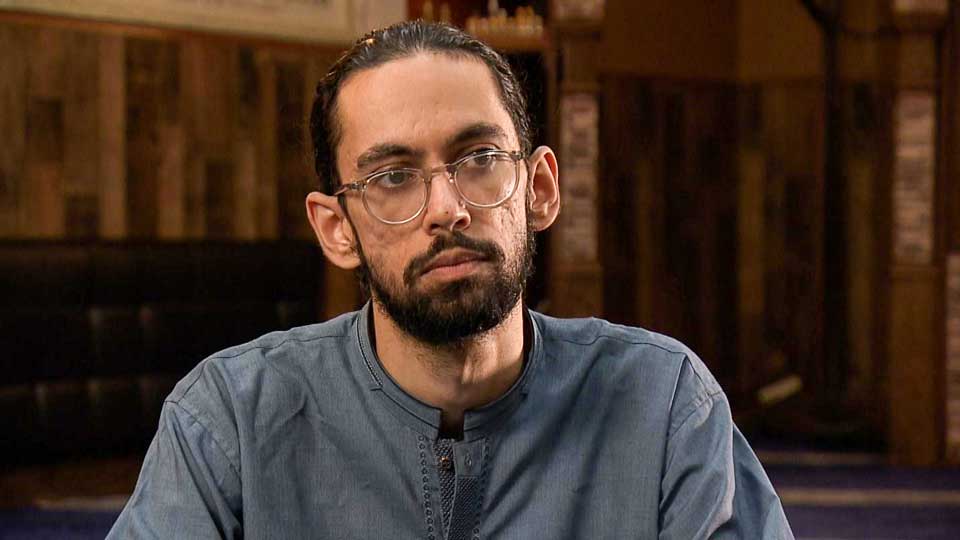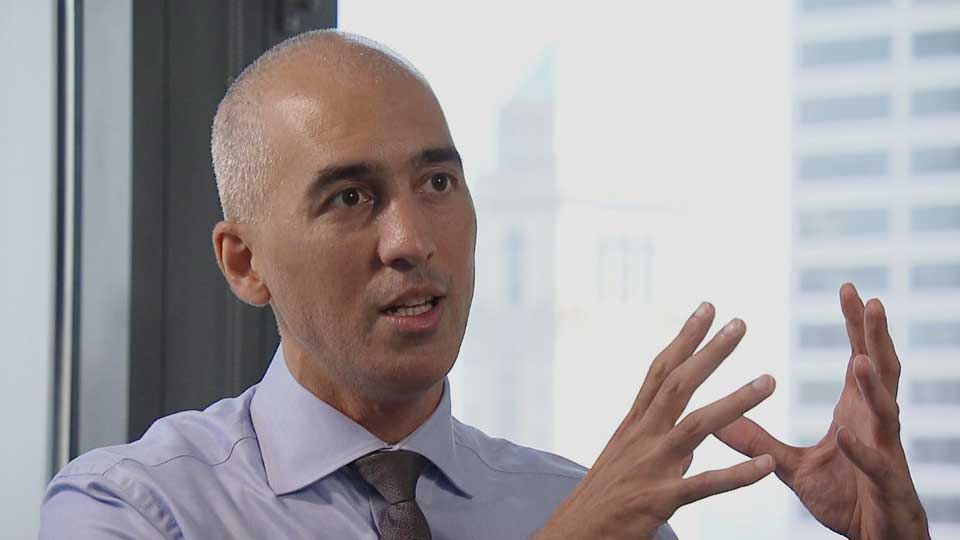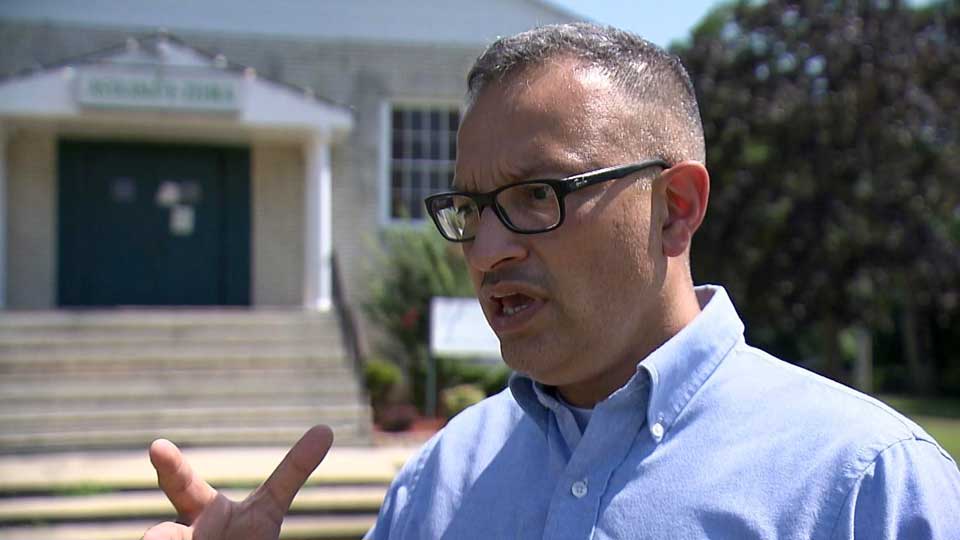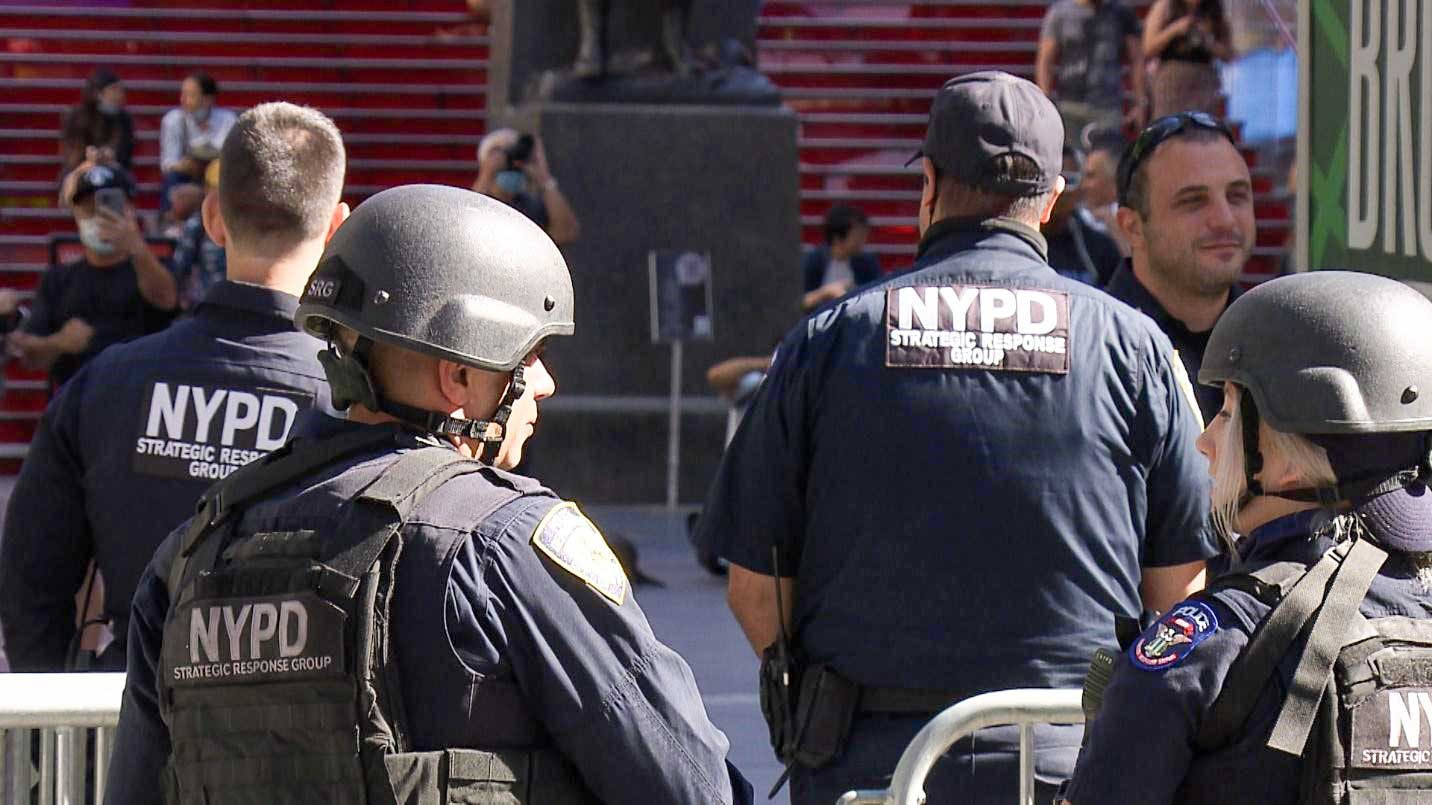Asad Dandia points to a garbage bin in front of his Brooklyn apartment building.
"Last night, the flooding was halfway up to this trash can," he says. "The subway shut down due to the flood, so I wasn't able to take the train."
Dandia, a New York native, is talking about the devastation left by Hurricane Ida. A couple of neighborhood kids sit idly on the sun-soaked sidewalk while he tells me about the damage in his Brighton Beach neighborhood. It's the week before the 20th anniversary of the 9/11 attacks, and it's hard to imagine that a Category 4 hurricane had ripped through the city just days before. It's also hard to imagine that the soft-spoken Dandia, who gained nationwide recognition for suing the NYPD, was a target of discriminatory surveillance by the department simply for being Muslim.
Dandia's story begins ten years ago. In 2011, he co-founded Muslims Giving Back, a volunteer-run charity serving homeless, immigrant, and low-income New Yorkers. A year after launching the group, he received a Facebook message from 19-year-old Bangladeshi American Shamiur Rahman, who wanted to get involved. The two men grew close. Dandia opened up his home to Rahman and even introduced him to his family.
Seven months later, Dandia saw a post on Rahman's Facebook page that turned his life upside down. Rahman had posted a confession, telling the world he was one of the many informants working for the NYPD to spy on Muslims in the greater New York area. The department had paid him $1,000 a month to pretend to be a devout Muslim and infiltrate the community. He was then asked to start inflammatory conversations about jihad or terrorism, record the responses, and send them to the NYPD.
Although the confession was news to Dandia, he eventually learned that the NYPD had been carrying out a secret surveillance program to locate and monitor Muslims throughout the city since 2001. He was shocked — even more so after finding out that he himself was a target. In 2013, he and other victims filed a lawsuit, Raza v. City of New York. During the course of the proceedings, the police admitted that the surveillance program had not generated a single terrorism-related lead. It took four years for the case to reach a final settlement, which most notably imposed restrictions on the NYPD for investigations in which race, religion, or ethnicity was the main motivating factor.

The floor, not the ceiling
Dandia understands the magnitude of winning a lawsuit against a department as powerful and heavily funded as the NYPD. He's satisfied with the outcome of the settlement but understands that there's still a long way to go.
"I often say what we achieved is the floor and not the ceiling," he says.
Although it's been ten years since he first read Rahman's confession, Dandia hasn't been able to completely shake off the trauma. Every time he comes back from traveling overseas, for example, he sends his itinerary to his lawyers, just in case he's detained and interrogated by the police.
One of those lawyers is Ramzi Kassem, a renowned professor at the City University of New York and the founding director of Creating Law Enforcement Accountability & Responsibility (CLEAR), which aims to support Muslim communities that have been unfairly targeted by local, state or federal government agencies under the guise of national security and counterterrorism. Kassem was also one of the lawyers who represented the plaintiffs in the Raza case.
"It's fundamentally a breach of the social contract in the United States, which proclaims itself to be democratic and open, for the police to be secretly gathering records on an entire faith community for no reason other than the fact that they belong to one religious group as opposed to another," he says.
Kassem stresses that although the settlement imposed unprecedented guardrails and restrictions on the NYPD, it doesn't completely prevent the police from conducting unfair surveillance.

NYPD extends reach beyond NY borders
The surveillance program wasn't just happening in New York, however; its tentacles reached as far as Helmetta, a quiet suburb in New Jersey.
Farhaj Hassan, a Muslim American and a member of the US Army Reserve, filed his own lawsuit against the NYPD when he found out through an explosive AP investigation that the department had been dispatching undercover officers to Muslim neighborhoods as part of its surveillance efforts. The program "mapped" the location of Muslims, Muslim-related businesses, and mosques, unlawfully monitoring their activities.
Hassan says he was deeply offended that this was happening to his community, slamming the NYPD's haphazard tactic of spying on them under the guise of combatting terrorism.
"Having blanket surveillance against anybody due to the way that I look or the way that my name sounds was an absolute waste of time," he says.
Though he won the case, he no longer travels to New York City because of suspicions that the police will do anything and everything to get away with harassing him for his faith. He's also taken to using the words "house of worship" instead of "mosque" because of the unfortunate stigma surrounding mosques since 9/11.

"The Muslim community will not be intimidated"
I ask Dandia how he now feels about Shamiur Rahman, the informant, ten years later. He says Rahman's actions were unjustifiable but places the blame first and foremost on the police.
"They're the ones who took advantage of him," he says. "Rahman was caught on drug possession charges, and they told him that he could face up to 15 years in prison… or spy on the Muslim community. And he did what he had to do. Instead of helping him and providing him with mental health services, the NYPD manipulated him."
Looking forward, Dandia says that that through these settlements, he hopes the NYPD, no matter how powerful, will get the message that the Muslim community will not be intimidated.

